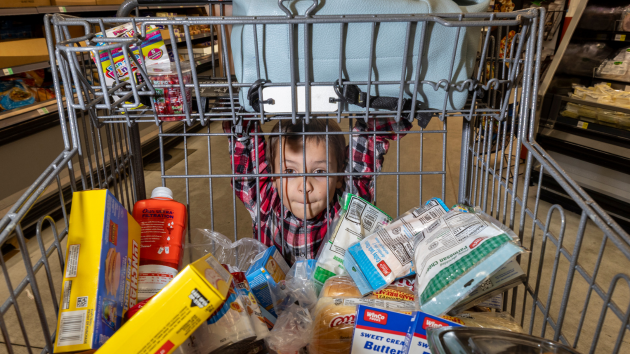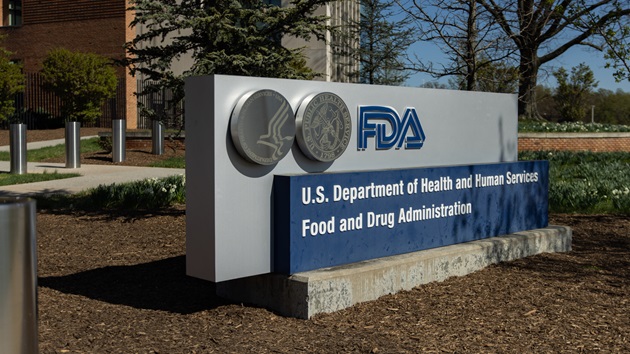Moms speak out during Disability Pride Month as US marks 32 years of ADA
Written by luck on July 26, 2022

(NEW YORK) — Some moms are opening up this July during Disability Pride Month and shining a light on a topic they feel gets overlooked and is often viewed negatively by others in society.
Natalie Hadley of Omaha, Nebraska, posted on LinkedIn in honor of her son Ranier, who lives with multiple disabilities in a group facility.
“July is Disability Pride Month. I am proud to love someone with multiple disabilities, my son, Ranier aka ‘Rain.’ Rain has a traumatic brain injury that resulted from being shaken by a daycare provider as an infant. He has come so far from a (mistaken) prognosis of being vegetative to being a loving, funny young man. He makes everyone he meets smile bigger. I love you, Rain! #ProudMama #DisabilityMatters #DisabilityPrideMonth,” the 55-year-old mother of three wrote alongside a photo of herself with her 26-year-old son.
Hadley told ABC News’ Good Morning America she wanted to share her story after seeing others post about Disability Pride Month because, unlike some with disabilities who can speak up for themselves, her son is unable to but deserves as much recognition.
“Someone had posted and said … ‘I’m not proud of my disability. I am proud of me.’ And I thought that was incredibly profound. And that’s really what prompted me to share about Rain and say, it’s Disability Pride Month. I’m not proud that Rain has a disability, but I am proud of Rain and I am proud to be Rain’s mom,” Hadley said. “I wanted to be Rain’s voice.”
Nearly 41 million Americans live with a disability, according to data from the U.S. Census Bureau and on Tuesday, the U.S. will mark the 32nd anniversary of the Americans with Disabilities Act, which was signed into law on July 26, 1990. It protects the rights of and prohibits discrimination against people with disabilities.
Ranier Hadley, according to his mom, sustained a traumatic brain injury as a 3-month-old at the hands of a daycare provider. He developed shaken baby syndrome, a “severe form of physical child abuse,” as defined by the Centers for Disease Control and Prevention.
He also has partial paralysis, some of which affects his speech, as well as emotional control issues and cognitive and developmental delays, meaning he functions at about the level of a 3- or 4-year-old.
“Part of why I advocate, part of why I’m very public and open about being the mother of an adult son with disabilities is, I hope other people see that situation and take comfort from it, maybe get some strength from it,” Hadley said.
Michelle Trites, a stay-at-home mom to 3-year-old Emma, said she also felt compelled to join in the social media conversation to raise awareness and respond to people who say they couldn’t handle a situation like hers as someone living with a disability who is also a parent to a child with disabilities.
“Some days ‘hard’ doesn’t even come close to how it feels. I wasn’t given a choice. Instead, we were given diagnoses, medications, and therapies. Emma means the world to [my husband] Tyler and I and there is nothing we won’t do to give her the best life for her,” Trites, 28, wrote in part in an Instagram post.
Emma, according to her mom, was diagnosed with Type 1 diabetes at 12 months and then with autism last September.
“As a parent, and as a person with diabetes, it’s not something you choose,” she told GMA. “When me and Tyler were expecting, we never imagined that our daughter would be getting two diagnoses within the first two years of her life.”
“I think one of the hardest things about disabilities and being someone with a disability or a parent to someone with a disability is the word ‘disability’ comes across to most people as negative or less than and it’s not,” Trites said. “It’s a difference but it doesn’t mean that you’re less than someone else or that you can’t do something. All disabilities are different and I think that people shouldn’t be afraid of that word, and they shouldn’t feel like that labels them as who they are.”
This Disability Pride Month, Hadley wants others to think about how people with disabilities inhabit the world around us.
“I think we need to get more comfortable with people with disabilities. And I think we also need to be better about thinking ahead to how would a person with disabilities experience something, whether that’s software, a community festival, making sure that our folks who make use of a wheelchair can access those things,” Hadley said.
Trites said it’s also a time not just to acknowledge but to embrace differences and it’s a message she hopes her daughter will learn as she grows up.
“[Emma’s] so much more than a blood sugar number or something she’s struggling with autism,” she said. “At this age, she’s really young, but I don’t want her to ever feel like she’s less than because of a disability and I don’t want her to ever feel ashamed, to hide her disabilities.”
Trites, who shares Emma and her family’s story through the Inspiring The Girls blog, hopes that talking about disabilities will continue to help others and build a community online that she’s found to be supportive outside of her local New Hampshire community.
“I think it’s important to bring awareness, bring acceptance and be able to talk about it because it will help someone else be able to talk about it,” she added.
Copyright © 2022, ABC Audio. All rights reserved.





